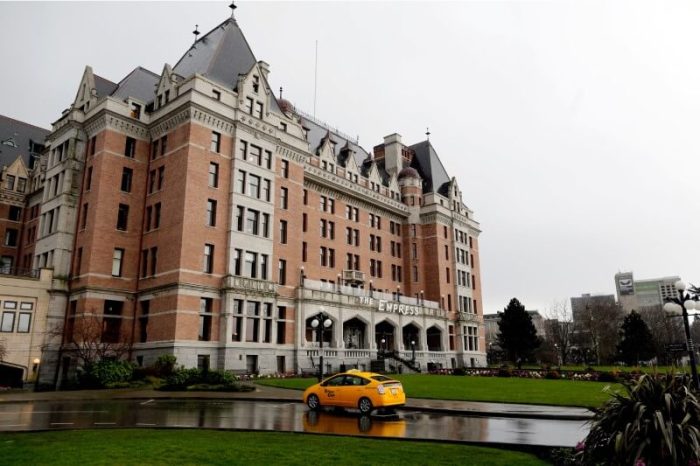By Mica Rosenberg
(Reuters) – A U.S. appeals court on Friday temporarily put on hold a decision to block one of President Donald Trump’s signature immigration policies that reined in a surge of migrants on the southern border, forcing tens of thousands to wait in Mexico.
A three-judge panel of the 9th U.S. Circuit Court of Appeals granted a Trump administration request to pause its ruling from earlier on Friday, to allow the government to ask the Supreme Court to take up the issue.
If it took effect, the ruling would be a blow for Trump, who has declared the policy a success in reducing the flow of hundreds of thousands of people from Central America into the United States as he campaigns for a second term in office.
The panel found the plaintiffs were likely to succeed in their argument that the program, called the Migrant Protection Protocols (MPP), violated U.S. immigration law and international obligations on the treatment of asylum seekers.
About 60,000 people have been sent back to Mexico to await the outcome of their cases in often dangerous border towns where they are vulnerable to kidnapping, rape, robbery and other crimes while living in sometimes unsanitary conditions.
Responding to the ruling, the Trump administration said at least 25,000 migrants sent back through the program remained in Mexico and that halting it “could prompt a rush on the southern border” by migrants trying to enter the United States.
The administration urged the appeals court to pause its decision or risk “immediate chaos on the border” that could cause “irreparable harm to the government, migrants, and the United States public.”
Immigration attorneys rushed to ports of entry on the border after Friday’s ruling to ensure Customs and Border Protection officers were aware the program had been blocked, said Taylor Levy, an immigration attorney based in El Paso.
In El Paso immigration court, Judge Nathan Herbert adjourned proceedings for the day, saying he was not sure how the ruling would affect individual cases.
Asylum officers, who screen migrants placed in the MPP program for fear of persecution in Mexico, were told to immediately stop working on such cases, according to an internal email seen by Reuters.
The White House criticized the initial ruling against the program as “another reckless nationwide injunction threatening our constitutional structure.”
Trump, who has made cracking down on immigration a central theme of his more than three years in the White House, has sought, through a series of new policies and rule changes, to reduce asylum claims, filed mostly by Central Americans arriving at the U.S.-Mexico border.
The policies on curbing asylum applications have cut the number of illegal crossings reported by border agents, and have been more successful than Trump’s efforts to build a physical barrier on the southern border.
Arrests of family units on the U.S.-Mexico border from October to January fell to 32,480, a drop of nearly 70 percent from a year earlier.
AS DANGEROUS AS YEMEN
Migrants in the MPP program, many of them children, have faced violence and homelessness in the wait for court dates. At least 1,000 people sent back under the program were violently attacked or threatened in Mexico, according to a Human Rights First report on Friday that documented kidnappings, rapes and assaults.
One of the states to which thousands of migrants were returned, Tamaulipas, is described by the U.S. State Department as carrying the same risk level as Yemen and Syria, due to crimes including “murder, armed robbery, carjacking, kidnapping, forced disappearances, extortion, and sexual assault.”
The Trump administration had argued the program did not violate a principle of international law known as non-refoulement, that asylum seekers should not be returned to places where they face danger.
The administration has said migrants could tell officials at any point in the process they had a fear of returning to Mexico.
Very few migrants have been transferred out of the program to pursue the resolution of court cases in the United States, according to a Reuters analysis of immigration court data published last year.
A Washington-area union for federal asylum officers argued against the MPP program in a brief filed in the case.
“By forcing a vulnerable population to return to a hostile territory where they are likely to face persecution, the MPP abandons our tradition of providing a safe haven to the persecuted,” it wrote.
The appeals panel concluded that plaintiffs, who included 11 asylum seekers and several immigration advocacy groups, “had shown a likelihood of success on their claim that the MPP does not comply with the United States’ treaty-based non-refoulement obligations.”
The Trump administration has said most asylum petitions are ultimately denied by immigration courts and releasing migrants into the United States to wait for hearings encourages people to disappear into the country. Officials say making migrants wait in Mexico is a way to cut down on fraudulent asylum claims.
In a separate ruling on Friday, the 9th Circuit left in place a lower court’s block on a Trump administration regulation that barred migrants who cross the U.S.-Mexico border between ports of entry from seeking asylum.
A three-judge panel in that case found the regulation – issued in November 2018 and swiftly enjoined by a federal judge in the Northern District of California – conflicted with federal immigration statutes on asylum and amounted to “a categorical ban” on certain asylum seekers.
(Reporting by Mica Rosenberg in New York, Kristina Cooke in Los Angeles, Jonathan Stempel in New York, Ted Hesson in Washington and Julio-Cesar Chavez in El Paso; Editing by Daniel Wallis and Clarence Fernandez)






















